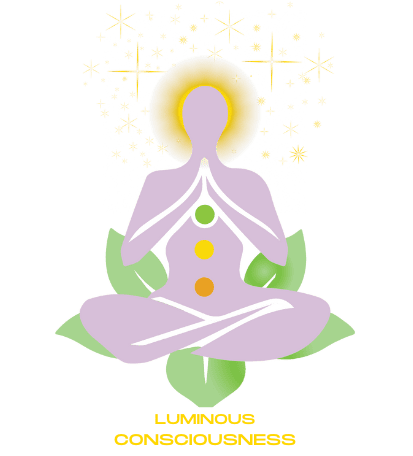There’s a lot of talk about morning routines, but not all habits are built on solid ground. Science-backed morning practices can seriously give a boost to your mood, energy, and productivity. This is especially true if you’re a software developer or tech pro aiming for peak performance (without adding more stress to the mix). Here’s a closer look at daily habits that don’t just sound good; they’re actually backed by loads of research and real-world results.

Mornings That Matter: Why Science Loves Healthy Habits
The first hour after waking up is pretty essential for your brain, body, and mindset. Studies in neuroscience and behavioral psychology show that your morning sets the tone for the rest of your day. For tech pros who spend most of their waking hours in front of screens, building a solid routine isn’t just a nice-to-have; it’s a smart way to pre-train your mind for focus, creativity, and resilience.
BIO rhythms regulate your attention, metabolic rate, and mood. Research from leading universities shows that targeted morning practices can help lower baseline stress hormones (like cortisol), improve emotional regulation, and fine-tune your ability to solve problems and code with less distraction. So, here’s how to put the science into practice and get more from every day.
Yoga Asanas: Move Gently, Think Sharper
Starting your day with yoga isn’t just about intense stretches or fancy poses. Even simple asanas (movements and postures) help stimulate blood flow, wake up stiff joints, and cue your nervous system to switch out of “sleep mode.” Peer-reviewed studies suggest that 10-20 minutes of morning yoga can improve working memory and cognitive flexibility, two skills that developers definitely use a lot.
The science points to increased parasympathetic (rest and digest) activity. This keeps you grounded and helps block stress signals that trigger anxiety or brain fog. My go-tos? Downward dog, gentle spinal twists, and cat cow stretches, all easy to do in your bedroom or office break room.
- Increased Flexibility: Helps with posture and keeps repetitive task injuries at bay.
- Better Mood: Regular practice boosts your production of GABA, a calming neurotransmitter proven to cut down on negative thinking loops.
- Energy Boost: Moving first thing raises your heart rate just enough to wake up naturally, no extra caffeine required.
Additionally, yoga has been linked to lower markers of inflammation and a renewed sense of motivation. For software professionals who often deal with long hours seated at a desk, integrating even a brief physical routine in the morning may help alleviate discomfort and improve focus. The best part is, you don’t need fancy equipment; just a mat, some quiet space, and a willingness to move are enough.
Breathwork and Pranayama: The Ultimate Nervous System Hack
Intentional breathing is one of the fastest ways to tune your brain for calm clarity. Pranayama (ancient breathwork, now heavily studied by modern science) isn’t just about relaxation. It improves oxygen delivery to your brain, helps flush cortisol, and sets your mind up for clear, creative thinking.
One of my favorites is “box breathing” (inhale for four, hold for four, exhale for four, hold for four). This type of controlled breathwork lowers your heart rate and strengthens your prefrontal cortex—the brain center responsible for decision-making and self-control.
- Faster Focus: Five minutes of slow breathwork can switch your brain out of scattered mode into a more productive zone.
- Emotional Regulation: Breath practices have been shown to help with emotional balance, which matters when you’re debugging complex code or prepping for a high-stakes meeting.
- Reduced Anxiety: Controlled breathing actively lowers stress hormones, making it super helpful for tech professionals with fast-paced lifestyles.
Try experimenting with different techniques: alternate nostril breathing, belly breathing, or even just focusing attention on slow inhalation and exhalation. Doing so may help you maintain composure when the inbox fills up or projects get demanding. Consistency is more important than perfection; a few minutes of practice each morning matter more than lengthy sessions done sporadically.
Deep Meditation and Transcendental Meditation (TM): Mindful Coding Starts Here
If you’ve ever struggled with distractions or racing thoughts before your workday kicks off, Meditation (and especially TM) offers a proven route to a calmer, more focused mind. Dozens of peer-reviewed studies confirm that meditating for even 10 minutes each morning increases your attention span, reduces impulsive mistakes, and helps you bounce back from setbacks faster.
Transcendental Meditation uses a simple mantra repeated silently to ease your mind into a relaxed, alert state. This practice isn’t about “emptying your mind”; it’s about settling your thoughts so you can notice and redirect your attention more effectively. If you’re not sure where to start, many free apps and YouTube guides can walk you through beginner sessions.
- Working Memory Boost: Regular Meditation thickens the prefrontal cortex, improving working memory—a trait closely linked with faster learning and creative problem-solving.
- Greater Resilience: Data shows that meditators develop better stress tolerance and emotional regulation over time.
- More Presence: You’ll find yourself “in the zone” faster, with fewer distractions and better flow during peak coding hours.
Some developers say that mindfulness breaks between projects or meetings help them recalibrate their thinking. Over time, this daily habit can foster greater adaptability when priorities switch or work gets unpredictable. Meditation isn’t just a luxury; it’s a practical tool that can help sharpen your professional edge.
Gratitude Journaling: Training Your Brain To See Wins
Scribbling down three things you’re grateful for isn’t just a self-help gimmick. Psychology research, like that from UC Berkeley’s Greater Good Science Center, shows gratitude journaling literally rewires the brain for optimism and resilience. These are excellent skills to have if you’re a tech worker dealing with constant deadlines and switching requirements.
This habit primes your attention toward positive cues in your environment. Over time, you’ll start noticing more “little wins” and feeling less attached to setbacks or negative self-talk. I like to keep a simple notebook—or a notes app on my phone—handy to jot down a few quick wins or things I’m thankful for, right after breakfast.
- Improved Mood: Regular gratitude practice increases dopamine and serotonin, the body’s “feel-good” chemicals.
- Less Burnout: Studies link gratitude journaling to higher job satisfaction and a stronger sense of purpose.
- Faster Recovery From Stress: When tough days hit, gratitude makes it easier to switch gears and recover quickly.
Recording these moments doesn’t have to be formal. Doodling, voice notes, or even texting yourself something positive can offer similar effects. Over weeks, this simple commitment boosts resilience and can help you stay enthusiastic about your work and goals.
Walking, Jogging, and Barefoot Grounding: Wake Up With Nature
Walking (or light jogging) in the morning primes your brain to learn, handle complex code, and stay curious. Adding barefoot grounding on grass or soil (when weather allows) gives you an extra scientific boost; recent studies show direct contact with the earth’s surface may reduce inflammation, stabilize circadian rhythms, and support better sleep at night.
You don’t need to run a marathon. A 10- to 20-minute walk in a local park, around your block, or even your backyard works. Bring along a podcast or an audiobook if you like, or listen to ambient sounds. Suppose you can, kick off your shoes, and let your toes touch real earth. Researchers are still exploring all the details, but there’s solid evidence that grounding can help with pain, stress, and overall vitality.
- Improved Mental Clarity: Exercise releases BDNF (brain-derived neurotrophic factor), which helps grow new brain cells and enhances mood regulation.
- Lower Stress: Just a few minutes of outdoor time reduces cortisol levels and ramps up endorphins.
- Sleep Sync: Grounding helps anchor your circadian rhythm, making it easier to fall asleep naturally at night.
Spending time outdoors also connects you to a changing, dynamic environment. Over time, it can serve as a break from the digital world and help spark creative thinking. If mornings are tough, linking your walk to another task, like grabbing coffee or taking out the trash, can help you make this routine stick.
Common Roadblocks: Why Most Routines Don’t Stick
It’s easy to get excited about a new morning habit, but sticking to it can be hard, especially when your work schedule is packed. Here are some practical tips based on what’s actually worked for me and my clients:
- Start Small: If you try cramming all these habits into one morning, you’ll probably burn out in a week. Choose just one or two to start, and let them become a natural part of your day.
- Give Yourself Grace: Skipping a day doesn’t mean you “failed.” The real win is consistency over time, not perfection.
- Stack Your Habits: Attach your new practice to something you already do (like stretching while your coffee brews or journaling after brushing your teeth).
The key is to remember that habits build over weeks, not days. If you miss a morning, don’t sweat it. Just get back into the groove the next day. Adapt your routine to your natural rhythm; some people thrive with sunrise starts, while others benefit from a bit more sleep before digging into their morning rituals.
Yoga and Meditation Science Recap
Studies from Harvard, Stanford, and other top institutions keep confirming what ancient traditions have known for centuries. Morning movement, breathwork, and mindfulness create workable foundations for emotional balance and sharp focus. These aren’t just “wellness” trends; they have scientific support for helping tech professionals perform better, avoid burnout, and stay inspired long-term.
Walking and Grounding: For Brains and Bodies
Moving your body and connecting with nature first thing in the morning is more than just “niceness”; it’s a way to make sure your mind and mood are tuned up for whatever the day throws at you. The payoff isn’t just feeling better but actually performing better on high-stakes projects, code sprints, and creative challenges. If you stick to this habit, you might spot unexpected bursts of inspiration or a more positive attitude in challenging moments.
Science-Backed Habits Cheat Sheet (Quick Reference)
- Yoga Asana – activates your body, improves focus, and lifts your mood
- Breathwork/Pranayama – tunes your nervous system for calm alertness
- Deep Meditation/TM – boosts your attention and creative problem-solving skills
- Gratitude Journaling – shifts your mindset and helps you recover from daily stress
- Walking/Barefoot Grounding – wakes up your brain, syncs your sleep, and reduces tension
If you incorporate even one or two of these, your mornings can go from sleepy to proactive, and your workday will likely follow suit.
Frequently Asked Questions
What if I don’t have time for a long routine?
Even five minutes is better than nothing. Start small. One habit done regularly beats ten that fizzle out when things get busy.
Do I need to meditate every day?
Daily is great, but research shows benefits from just three sessions a week. It’s consistency that counts, not streaks.
How do I know these habits are working?
Track your energy, mood, and focus for a week. Most people notice subtle, but real, improvements after just a few sessions.
Ready To Create More Freedom and Balance?
Mornings that start with focus and intention ripple out into your whole workday and beyond. I help software pros and tech-driven leaders launch AI businesses designed for flexibility, purpose, and lasting Wellbeing. If you’re curious about how to build your business and upgrade your life, click here to book a free call. Together, we’ll set up an AI-powered launch plan tailored for your strengths so you can reach your goals with more peace and less hustle.
